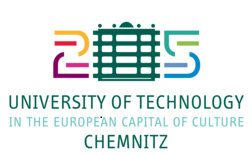Development of emotional knowledge and its relationship with productive vocabulary in monolingual and multilingual children in pre-primary classes
DOI:
https://doi.org/10.71514/jssal/2025.191Keywords:
Emotional knowledge, productive vocabulary, multilingualism, primary school, emotional developmentAbstract
Emotional and language skills are prerequisites for successful participation in educational processes. Multilingual children often have different backgrounds for acquiring German, which can affect their language and emotional development. Studies indicate a reciprocal relationship between language and emotional competencies. However, the relationship between productive vocabulary and emotional knowledge has not yet been sufficiently investigated. In Hesse, Germany, children who have been deferred from school enrolment due to developmental delays can attend pre-primary classes. No research has examined their skills so far. This study explores productive vocabulary and emotional knowledge of monolingual and multilingual pre-primary classes children. Using data from 179 children, the study examines initial differences, developmental trajectories, and potential correlations between productive vocabulary and emotional knowledge, with a particular focus on the role of home language exposure. Productive vocabulary was measured at the beginning of pre-primary class using the picture-naming subtest from SET 5–10. Emotional knowledge was assessed at the beginning and end of pre-primary class using the ATEM 3–9. The analysis was carried out using MANOVA, ANOVAS and Spearman’s rank correlation. The results show significant differences at school entry: Monolingual children perform better than multilingual peers in both domains. Within the multilingual group, home exposure to German is associated with higher scores. Over the school year, all groups show significant increases in emotional knowledge. A moderate to strong correlation can be found between productive vocabulary and emotional knowledge. The study underscores the importance of integrating systematic and additional emotional and language learning programs in primary education.
Downloads
References
Autor:innengruppe Bildungsberichterstattung (2022). Bildung in Deutschland 2022. Ein indikatorengestützter Bericht mit einer Analyse zum Bildungspersonal. DOI: 10.3278/6001820hw
Bahn, D., Sommer, J., Schwarzer, G. & Kauschke, C. (2023). Granularität beim Erzählen emotionaler Ereignisse im Kindes- und Erwachsenenalter. Kindheit und Entwicklung, 32(3), 161-173. DOI: 10.1026/0942-5403/a000420
Beck, L., Kumschick, I. R., Eid, M., & Klann-Delius, G. (2011). Relationship Between Language Competence and Emotional Competence in Middle Childhood. Emotion. Advance online publication. DOI: 10.1037/a002632
Bulotsky-Shearer, R. & Fantuzzo, J. (2004). Adjustment scales for preschool intervention: Extending validity and relevance across multiple perspectives. Psychology in the Schools, 41, 725 – 736. DOI: 10.1002/pits.20018
Cohen, J. (1992). Statistical Power Analysis. Current Directions in Psychological Science, 1(3), 98-101. DOI: 10.1111/1467-8721.ep10768783
Denham, S. A., Blair, K. A., DeMulder, E., Levitas, J., Sawyer, K., Auerbach-Major, S. & Queenan, P. (2003). Preschool emotional competence: pathway to social competence? Child Dev., 74(1). 238-256. DOI: 10.1111/1467-8624.00533.
Denham, S. A., & Brown, C. (2010). “Plays Nice With Others”: Social–Emotional Learning and Academic Success. Early Education and Development, 21(5), 652–680. DOI: 0.1080/10409289.2010.497450
Denham, S. A., Bassett, H. H., Thayer, S. K., Mincic, M.S., Sirotkin, Y. S. & Zinsser, K. (2012). Observing preschoolers’ social-emotional behavior: structure, foundations, and prediction of early school success. Journal of Genetic Psychology, 173(3), 246–278. DOI: 10.1080/00 221325.2011.597457
Denham, S. A., Bassett, H. H., Way, E., Kalb, S., Warren-Khot, H., & Zinsser, K. (2014). „How Would You Feel? What Would You Do?” Development and Underpinnings of Preschoolers’ Social Information Processing. Journal of Research in Childhood Education, 28(2), 182–202. DOI: 10.1080/02568543.2014.883558
Dyson, B., Shen, Y., Howley, D. & Baek, S. (2023). Social emotional learning matters: Interpreting educators’ perspectives at a high-needs rural elementary school. Sec. Educational Psychology, 8. DOI: 10.3389/feduc.2023.1100667
Ehl, B. & Grosche, M. (2020). Einbezug von Alter und Sprachkontaktdauer in die Wortschatzdiagnostik bei Mehrsprachigkeit. Zeitschrift für Entwicklungspsychologie und Pädagogische Psychologie, 52(1–2), 41–53. DOI: 10.1026/0049-8637/a000228
Ertanir, B., Kratzmann, J. & Sachse, S. (2019). Sozio-emotionale Kompetenzen mehrsprachiger Kindergartenkinder und deren Wechselwirkungen mit den Sprachleistungen im Deutschen. Zeitschrift für Entwicklungspsychologie und Pädagogische Psychologie, 51(1), 31–44. DOI: 10.1026/0049-8637/a000207
Eisenberg, N., Cumberland, A., Spinrad, T. L., Fabes, R. A., Shepard, S. A., Reiser, M., Murphy, B. C., Losoyaa, S. H. & Guthrie, I. K. (2001). The Relations of Regulation and Emotionality to Children’s Externalizing and Internalizing Problem Behavior. Child Development, 72(4), 1112–1134. DOI: 10.1111/1467-8624.00337
Gabler, K., Mannel, S., Hardy, I., Henschel, S., Heppt, B., Hettmannsperger‐Lippolt, R., Sontag, C. & Stanat, P. (2020). Fachintegrierte Sprachförderung im Sachunterricht der Grundschule: Entwicklung, Erprobung und Evaluation eines Fortbildungskonzepts auf der Grundlage des Scaffolding‐Ansatzes. In C. Titz, S. Weber, H. Wagner, A. Ropeter, C. Geyer & M. Hasselhorn (Hrsg.), Sprach‐ und Schriftsprachförderung wirksam gestalten: Innovative Konzepte und Forschungsimpulse (S. 59‐83). Stuttgart: Kohlhammer.
Grosse, G., & Streubel, B., Gunzenhauser, C. & Saalbach, H. (2021). Let’s Talk About Emotions: The Development of Children’s Emotion Vocabulary from 4 to 11 Years of Age. Affec Sci, 2, 150–162. DOI: 10.1017/S0954579400006374
Klinkhammer, J., Voltmer, K. & von Salisch, M. (2022). Emotionale Kompetenz bei Kindern und Jugendlichen. Entwicklung und Folgen. Stuttgart: Kohlhammer.
Kockeritz, M., Klinkhammer, J. & von Salisch, M. (2010). Die Entwicklung des Emotionswissens und der behavioralen Selbstregulation bei Vorschulkindern mit und ohne Migrationshintergrund unter Berucksichtigung des Sprachverstandnisses. Praxis der Kinderpsychologie und Kinderpsychiatrie, 59, 529 – 544. DOI: 10.13109/prkk.2010.59.7.529.
Leiner, S. (2022). Ein Grund zum Feiern? Die Vorklasse an hessischen Grundschulen wird 70. Hessische Lehrerzeitung, 7-8, 28-29. https://www.gew-hessen.de/details/ein-grund-zum-feiern [Accessed May 12, 2025]
Lenhard, A. & Lenhard, W. (2017). Diagnostik von Lesestörungenmit ELFE II bei Kindern mit Migrationshintergrund (inklusive ad-aptierter Normen). Dettelbach: Psychometrica.
Lenhard, A., Lenhard, W., Segerer, R. & Suggate, S. (2015). PeabodyPicture Vocabulary Test , 4. Ausgabe. Frankfurt am Main: Pearson.
Limbird, C. K. (2007). Phonological processing, verbal abilities, and second language literacy development among bilingual Turkish children in Germany. Dissertation. Freie Universität Berlin.
Mayer, A., Schramm, C. & Ulrich, T. (2024). Sprachliche Fähigkeiten von Kindern mit psychischen Auffälligkeiten. Zeitschrift für Heilpädagogik, 75,148 –162.
McElvany, N., Ohle, A., El-Khechen, W., Harsy, I. & Cinar, M. (2017). Förderung sprachlicher Kompetenzen – Das Potenzial der Familiensprache für den Wortschatzerwerb aus Texten. Zeitschrift für Pädagogische Psychologie, 31(1), 13 – 25. DOI: 10.1024/1010-0652/a000189.
Petermann, F. (2010). SET 5-10. Sprachstandserhebungstest für Kinder im Alter zwischen 5 und 10 Jahren. Göttingen: Hogrefe.
Petermann, F., Petermann, U. & Nitkowski, D. (2016). Emotionstraining in der Schule. Ein Programm zur Förderung der emotionalen Kompetenz. Göttingen: Hogrefe.
Petermann, F. & Wiedebusch, S. (2016). Emotionale Kompetenz bei Kindern. Göttingen: Hogrefe.
Ploch, B. & Heinzmann, S. (2021). Erziehung und Bildung in Offenbach. Bericht 2021. Offenbach am Main. https://www.offenbach.de/medien/bindata/of/fachstelle_Bildung/Erziehungs-und-Bildungsbericht-2021.pdf
Pokitsch, D.(2021). Wer spricht? Sprachbezogene Subjektivierungsprozesse in der Schule der Migrationsgesellschaft. Wiesbaden: Springer VS.
R Core Team (2021). R: A language and environment for statistical computing. R Foundation for Statistical Computing, Vienna, Austria. https://www.R-project.org/
Rose, E., Ebert., S. & Weinert, S. (2016). Zusammenspiel sprachlicher und sozial- emotionaler Entwicklung vom vierten bis zum achten Lebensjahr. Frühe Bildung, 5 (2), 66–72. DOI:10.1026/2191-9186/a000254.
SchulG HE (Stand 28.03.2023): Hessisches Schulgesetz. Vom 01. August 2017 zuletzt geändert durch die Verordnung vom 28.03.2023, https://www.rv.hessenrecht.hessen.de/bshe/document/jlr-SchulGHE2017V12P58/part/s [Accessed April 24, 2025].
Seifert, S., Paleczek, L. & Gesteiger-Klicpera, B. (2019). Rezeptive Wortschatzleistungen in der Grundschule. Unterschiede zwischen Kindern mit Deutsch als Erst- oder Zweitsprache. Empirische Sonderpädagogik, 11(4), 259-278. DOI: 10.25656/01:18334
Stanat, P., Schipolowski, S., Schneider, R., Sachse, K. A., Weirich, S., Henschel, S. (2021). IQB-Bildungstrend 2021. Kompetenzen in den Fächern Deutsch und Mathematik am Ende der 4. Jahrgangsstufe im dritten Ländervergleich. Münster, New York: Waxmann. DOI: 10.25656/01:26077
Stitzinger, U. (2022). Einflussfaktoren im Spracherwerb mehrsprachig aufwachsender Kinder im Vergleich. M. Spreer, M. Wahl & H. Beek (Hrsg.), Sprachentwicklung im Dialog: Digitalität – Kommunikation – Partizipation (S. 301-310). Idstein: Schulz-Kirchner.
Tracy, J. L., Robins, R. W. & Lagattuta, K. H. (2005). Can children recognize pride? Emotion, 5, 251 – 257. DOI: 10.1037/1528-3542.5.3.251Voltmer, K. & von Salisch, M. (2018). Native-born German and immigrant children's development of emotion knowledge: A latent growth curve analysis. Br J Dev Psychol, 37(1), 112-129. DOI: 10.1111/bjdp.12262
Ulrich, F., Petermann, F. & Gust, N. (2019). Einfluss der Aufgabenstellung und des Wortschatzes auf die Emotionserkennung bei Drei- bis Fünfjährigen. Kindheit und Entwicklung, 28(1), 59–67. DOI: 10.1026/0942-5403/a000271
Voltmer, K. & von Salisch, M. (2021). ATEM 3-9. Adaptiver Test des Emotionswissens. Berlin: Springer.
von Salisch, M., Hänel, M. & Denham, S. A. (2015). Emotionswissen, exekutive Funktionen und Veränderungen bei Aufmerksamkeitsproblemen von Vorschulkindern. Kindheit und Entwicklung, 24, 78–85. DOI: 10.1026/0942-5403/a00
von Salisch, M. & Wübker, M. (2021) Sprache und Emotionswissen. In M. von Salisch, O. Hormann, P. Cloos, K. Koch, & C. Mähler (Hrsg.), Fühlen Denken Sprechen: Alltagsintegrierte Sprachbildung in Kindertageseinrichtungen (S.33-40). Waxmann.
Vygotsky, L. S. (1978). Mind in society: The development of higher psychological processes. Massachusetts: Harvard University Press. DOI: 10.2307/j.ctvjf9vz4
Downloads
Published
How to Cite
Issue
Section
License
Copyright (c) 2025 Christin Büning, Irene Corvacho del Toro, Arianne Lydia Andreas, Miriam Naomi Menz, Miriam Hansen, Carolin Quenzer-Alfred, Daniel Mays

This work is licensed under a Creative Commons Attribution 4.0 International License.
The work is made available under the terms of the Public Offer and the Creative Commons Attribution 4.0 International License (CC BY 4.0). This license allows anyone to reproduce, distribute, and adapt the material in any medium or format, including for commercial purposes, provided that proper credit is given to the creator(s) and the original source.












